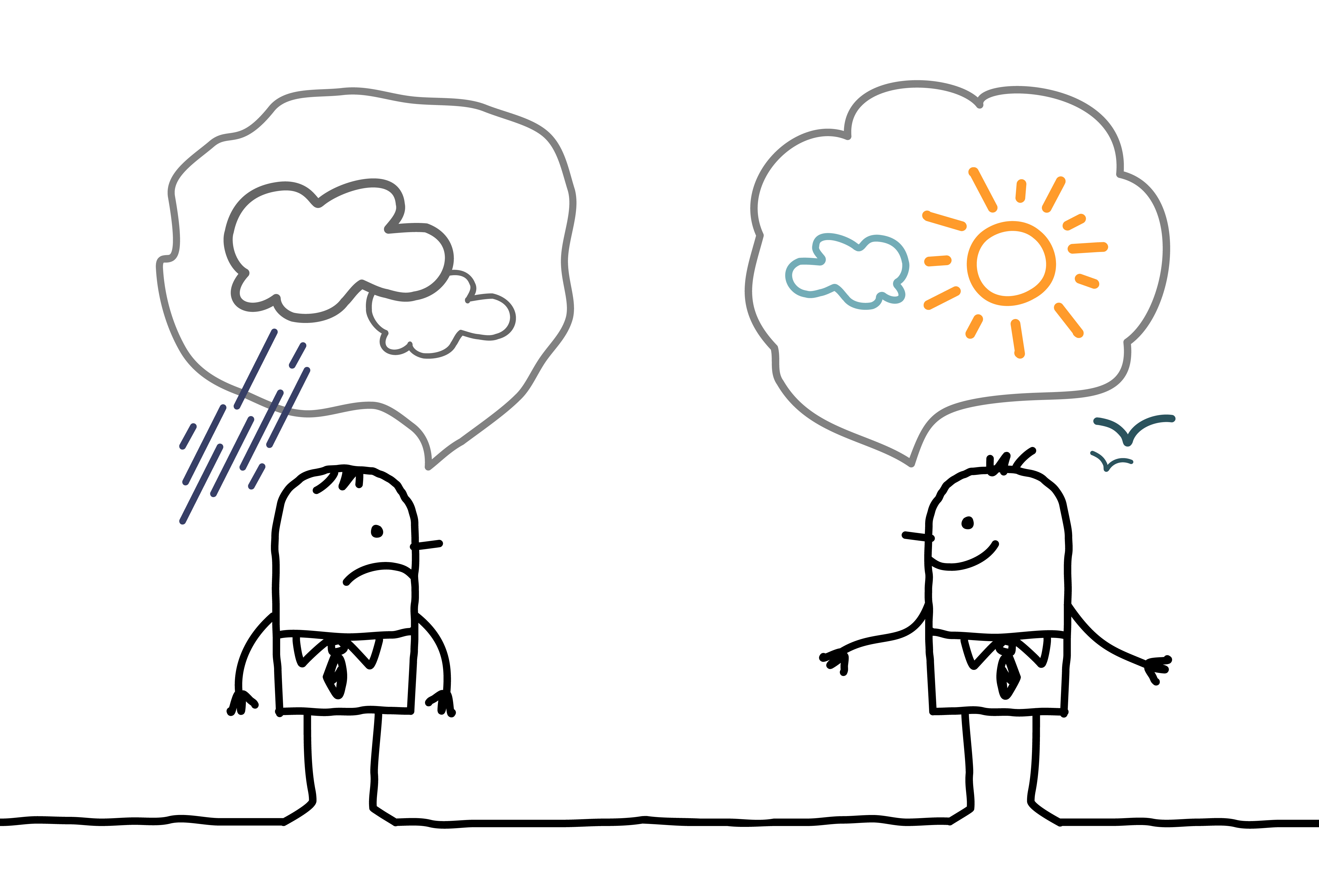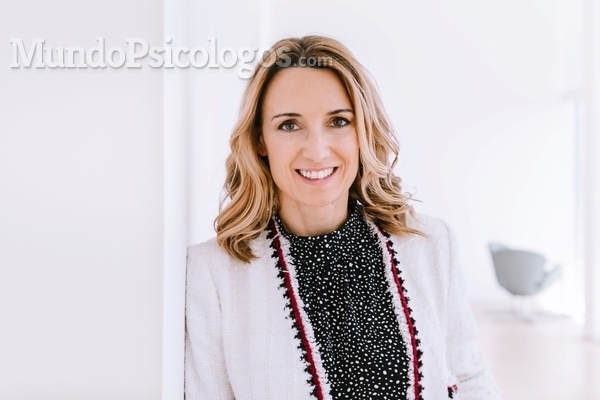The attitude with which you face life influences your day-to-day thoughts. Changing it is always up to you.

Depends on attitude in life. Two people in the same situation react differently because they experience it differently, based on their previous experiences and the emotion they feel at that precise moment. For example, the subject who faces a Presa Canario for the first time may feel afraid or may enjoy it.
Based on the teachings of Seligman have three dimensions to assess adversity, always from the vision of an optimistic subject and a pessimist.
What differentiates an optimist from a pessimist? His attitude.
The pessimist has negative attitude everything will always be black and therefore his life always remains sad and negative.
The optimist has a mental attitude of mastery of the situation and adversity and is open to change and controls his thoughts by focusing on the positive world.
- 1. Duration. It is about the duration in time of the adversity.
Optimistic. She lives it like passenger. She will come out in the sun again.
Pessimistic. lives it like durable. It never changes, everything will stay the same.
- 2. Personalization of responsibility It’s about seeing whose fault it is for the adversity.
Optimistic. He makes the decisions and takes action to solve it. lives it like something partiala pivotal moment and they do not feel that they are responsible for all the evils in the world.
Pessimistic. Assume completely that what happens is solely his fault, that everything that happens to him is because he resigns himself and does not take action, he remains regretting.
- 3. Breadth of the problem. He tells us how many aspects of our lives that adversity influences.
Optimistic. He perceives it in a way isolated. This adversity is concrete and unique. He has it contextualized.
Pessimistic. He perceives it in a way absolute. He is undervalued as a subject, I can’t do anything, all the sticks come my way.
- 4. Main actors in your life. Where is the prominence of the subject.
Optimistic. Has change control. I can do something to be better and I want to be better. Take action for something concrete and current.
Pessimistic. Think that control is out, out of control. Everything depends on actions that others do and everything is the fault of the outside, for example, I am unemployed and it is the fault of the government, of a businessman, of the people on the street, etc. He never assumes his part and experiences it as something global and alien to him.
Optimism is the tendency to see things in their most favorable light.. When something happens we usually look for the cause of that event and assign a reason why it happened.

There is another classification type of that attribution of causality: optimistic pessimist
- Internal/external internal (it’s my fault) external (it couldn’t be helped, it’s not my fault.)
- Stable/unstable stable. I can’t change) unstable (this can be changed)
- Global/specific global (anything you make specific (has been just this one time)
- I did it wrong
Optimism is related to our expectations
And elements like perseverance and a person’s ability to set goals and objectives.
Intelligent optimism has the ability to use your personal strengths as well as your abilities to deal with problems effectively. In controlled and uncontrolled situations, The optimist will look for possible solutions and if there are none (or they are not within his reach) he will accept them as they are with an optimistic vision.
To change causality styles we must carry out attributional training.
- Identify the thoughts that generate these attributions (sometimes they are small, common or everyday that we do not realize).
- Evaluate those thoughts.
- bfind alternatives. The idea is to reduce thinking so as not to feed it back and in this way, a more serene mental state will make us capable of finding more useful and effective alternatives..
Life has its dark side and its bright side, it is up to us to choose the one that pleases us most.








